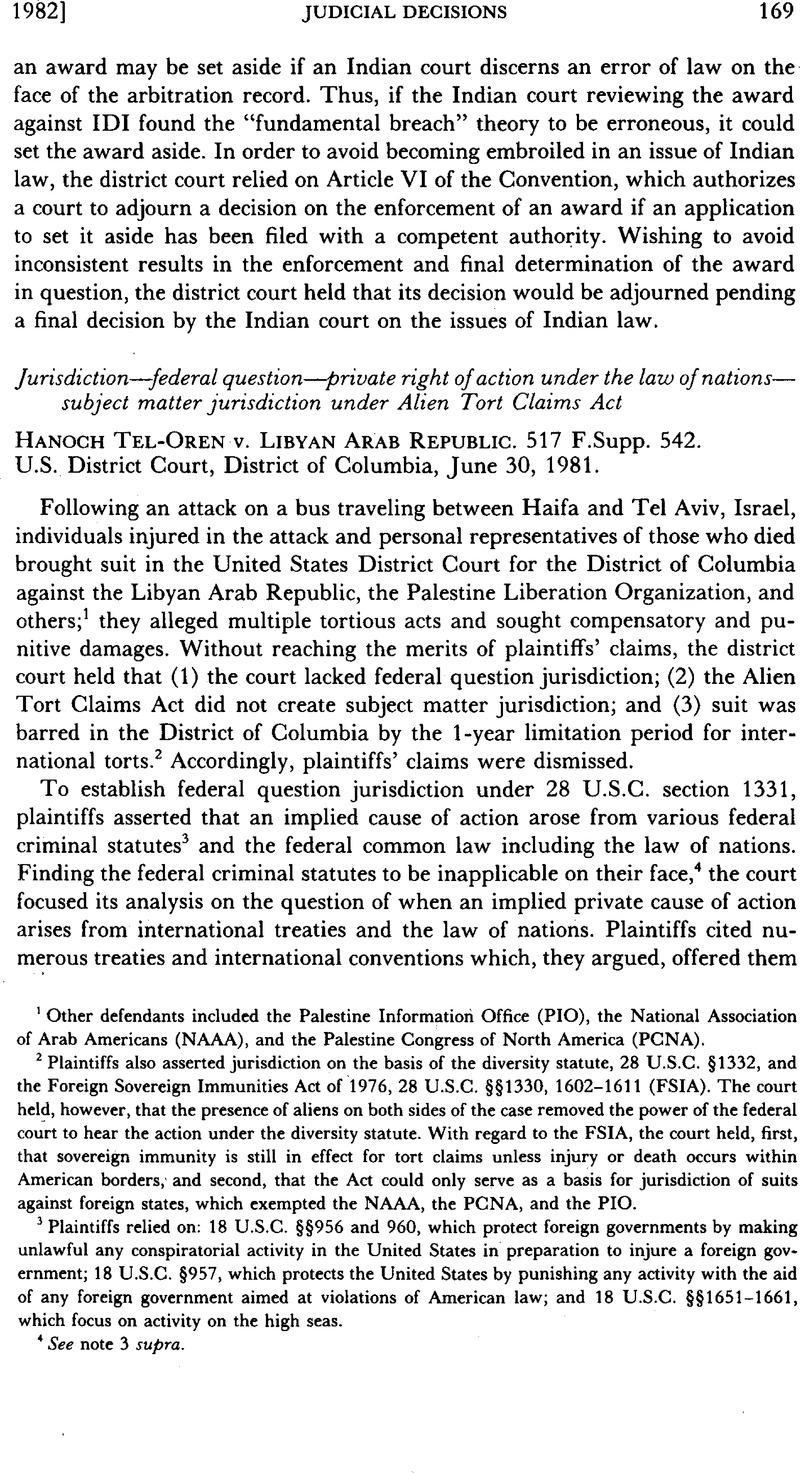No CrossRef data available.
Article contents
Hanoch Tel-Oren v. Libyan Arab Republic
Published online by Cambridge University Press: 27 February 2017
Abstract

- Type
- Judicial Decisions
- Information
- Copyright
- Copyright © American Society of International Law 1982
References
1 Other defendants included the Palestine Information Office (PIO), the National Association of Arab Americans (NAAA), and the Palestine Congress of North America (PCNA).
2 Plaintiffs also asserted jurisdiction on the basis of the diversity statute, 28 U.S.C. §1332, and the Foreign Sovereign Immunities Act of 1976, 28 U.S.C. §§1330, 1602–1611 (FSIA). The court held, however, that the presence of aliens on both sides of the case removed the power of the federal court to hear the action under the diversity statute. With regard to the FSIA, the court held, first, that sovereign immunity is still in effect for tort claims unless injury or death occurs within American borders, and second, that the Act could only serve as a basis for jurisdiction of suits against foreign states, which exempted the NAAA, the PCNA, and the PIO.
3 Plaintiffs relied on: 18 U.S.C. §§956 and 960, which protect foreign governments by making unlawful any conspiratorial activity in the United States in preparation to injure a foreign government; 18 U.S.C. §957, which protects the United States by punishing any activity with the aid of any foreign government aimed at violations of American law; and 18 U.S.C. §§1651–1661, which focus on activity on the high seas.
4 See note 3 supra.
5 These treaties and international conventions included the Charter of the United Nations; the Declaration on Principles of International Law concerning Friendly Relations and Co–operation among States, GA Res. 2625 (XXV) (Oct. 24, 1970); the Universal Declaration of Human Rights, GA Res. 217(A) (III) (Dec. 10, 1948); the International Covenant on Civil and Political Rights, GA Res. 2200(A) (XXI) (Dec. 16, 1966); the Hague Conventions of 1899 (II) and 1907 (IV) on the Laws and Customs of War on Land; the Convention on the Prevention and Punishment of the Crime of Genocide, GA Res. 260A (III) (Dec. 9, 1948); the American Convention of Human Rights, OAS TS No. 36 (Nov. 22, 1969).
6 517 F.Supp. 542, 548.
7 Id. at 549.
8 630 F.2d 876 (2d Cir. 1980), 75 AJIL 149 (1981).


